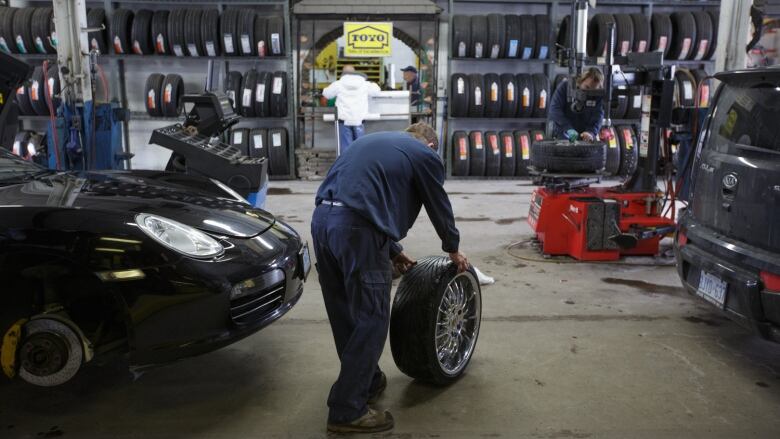Car sitting in the driveway? Here's how to prevent damage during COVID-19
Halifax expert says vehicles should be used once a week to avoid rusty brakes and drained batteries

As cars sit in Nova Scotia driveways during the COVID-19 pandemic, a Halifax auto expert says people should still take their vehicles for a workout now and then.
Paul Studley, branch manager for Coast Tire & Auto Service in Halifax, said Friday there's "no question" the province and country are dealing with an unprecedented situation as more people work from home.
The province, like many across the country, has declared a state of emergency and urged people to stay in their neighbourhoods and only drive to get essentials.
But Studley cautioned that leaving cars stationary for too long can cause rust to build up on the brake rotors, leading them to eventually seize.
Start your engine
Also, hesaid the battery can diminish over time, so the engine should be started up and run on a "fairly regular" basis.
"The computers in vehicles are always working. Even if the car's not running, they're drawing juice out of that battery and if you don't start it and let it charge up, it's gonna eventually drain down," Studley said.
The best way to avoid these issues is to drive your vehicle once a week for at least 10 to 15 minutes.
This would still fit with the public health guidelines around doing your errands, like having one family member take the car to the grocery store and pharmacy.
"That way, the alternator has time to charge up the battery and it'll clean ... any surface rust off when you brake," Studley said.
"That should be fine."
He also noted it's important to keep an eye on the air pressure in your tires, as well as oil or other car fluids, since people might not be checking as much as they usually would.












_(720p).jpg)


 OFFICIAL HD MUSIC VIDEO.jpg)
.jpg)



























































































